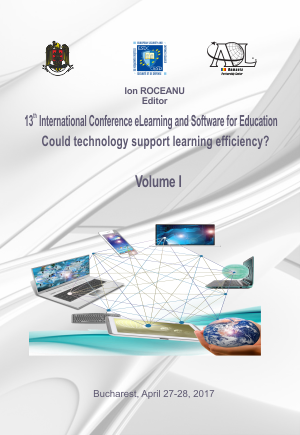THE ROLE OF E-LEARNING IN WORKFORCE EDUCATION
THE ROLE OF E-LEARNING IN WORKFORCE EDUCATION
Author(s): George Lăzăroiu, Elvira NicaSubject(s): Social Sciences, Education, Higher Education
Published by: Carol I National Defence University Publishing House
Keywords: e-learning; workforce education; organizational performance; job outcomes.
Summary/Abstract: Following Clark and Mayer (2016), this paper develops the notion that e-learning is instruction provided on a digital device, e.g. a smart phone or a laptop computer that is conceived to back individual learning or organizational performance objectives. Instructional methods that reinforce human learning mechanisms are an important component of successful e-learning courseware. E-learning has been impacted by economic requirements that aim more economical settings for training and by constant advancement of computer technology. We are specifically interested in how previous research investigated the idea that the advantages obtained from the ground-breaking technologies are determined by the degree to which they are employed in manners consonant with human cognitive learning mechanisms and contingent on research-based criteria of didactic design. E-learning seeks to produce job-transferable knowledge and abilities associated with organizational performance or to assist people in attaining personal learning objectives. Organizations depend upon e-learning to save training time and travel expenses related to established face-to-face learning (e-learning should adequately produce knowledge and skills associated with intended job outcomes). The empirical investigation described in this paper points out that e-learning provides chances to involve individuals in job-realistic settings demanding them to deal with occasional issues or accomplish tasks shortly that could take a lot of time to carry out in the real world. E-learning can be conceived to update and enhance particular job performance. The difficult task in e-learning is to establish lessons in fashions that are in harmony with human learning mechanisms. To be successful, didactic schemes should further the psychological events compulsory for learning. This research makes conceptual and methodological contributions to the theory that effective e-learning involves individuals with the didactic material in manners that stimulate the choosing, organization, assimilation, and retrieval of novel knowledge.
Journal: Conference proceedings of »eLearning and Software for Education« (eLSE)
- Issue Year: 13/2017
- Issue No: 01
- Page Range: 148-153
- Page Count: 6
- Language: English

